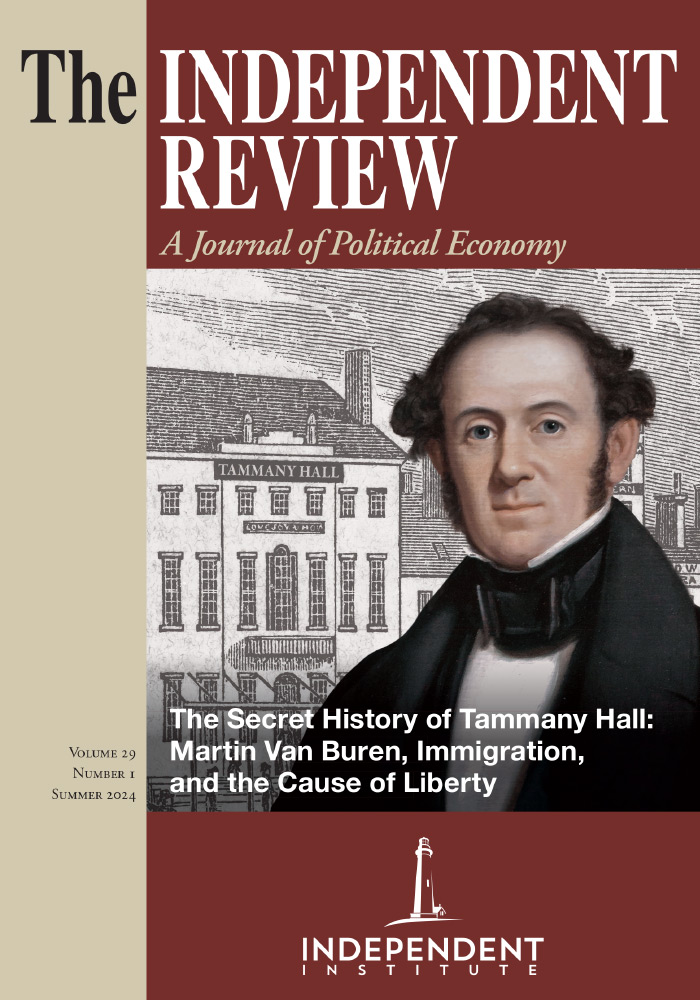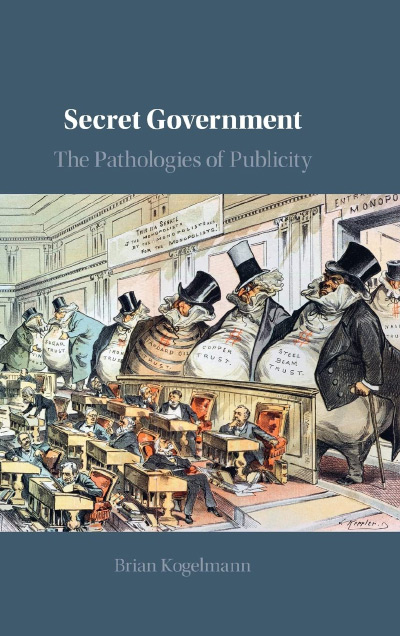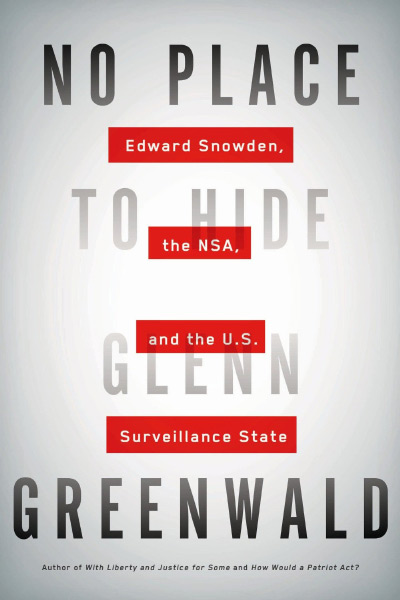There is a tradition of questioning the value of “openness” in politics. The origins of the “Australian” ballot are obvious: If I vote in secret, you can’t punish me for voting wrong, but neither can I demand reward for voting as you asked. Bruce Ackerman and Ian Ayres went further (Voting with Dollars: A New Paradigm for Campaign Finance, New Haven: Yale University Press, 2004), suggesting an “Australian campaign contribution” where all donations must be made anonymously to a central authority, and then disbursed in lump sums. Again, requiring secrecy both protects donors against retaliation, and breaks the credibility nexus between donor and recipient if the donor is trying to buy influence.
Brian Kogelmann (who recently moved to Purdue University) has extended this logic from the “demand” side—voting and donations—to the “supply” side, taking on the established wisdom that transparency in government is good, and more transparency is always better. Starting from the Brandeisian bon mot that “Sunlight ... is the best of disinfectants,” Kogelmann conducts a fair-minded and logical investigation of the claim. Using “publicity” in its older (frankly, archaic) form, he argues that in many cases less, and maybe much less, publicity would make politics less pathological.
Two general themes organize the book; they are related, but distinct. One is the problem of honest discussion and decision-making among elites; the second is the problem of representation of elected officials who must report to constituents and seek reelection. Overall, the conclusion is “democracy thrives in darkness,” directly contradicting the rather pompous and self-congratulatory slogan of the Washington Post.
Protection from public scrutiny in discussion and decision-making is rather the easier case, it would seem. Meeting in “executive session,” especially on personnel decisions, allows people to speak freely and to share opinions on confidential outside sources, the sort of due diligence that is requisite for sound choices. But the second venue, representation? How could voter-principals judge the actions of their elected member-agents without knowledge of what those agents have done? It doesn’t make any sense.
Kogelmann carefully breaks the argument down and shows that this “obvious” argument does not bear close scrutiny. There are at least three main arguments for maximizing “publicity” or transparency in representation, he argues. These are (1) anti-tyranny, (2) the argument from democracy, and (3) the argument from legitimacy. If one takes the implicit premises of each, and organizes the chain of logic dispassionately, it turns out to be surprisingly difficult to sustain the argument, at least in the strong form of “more transparency is always better.”
I do think that the case could be made even more strongly than Kogelmann makes it, though his argument works well as it stands. Still, any serious argument about representation should begin with Hannah Pitkin (The Concept of Representation, Berkeley: University of California Press, 1972), who argued that there are four quite distinct notions of “representation”: formalistic, symbolic, descriptive, and substantive. Without going into the details, I believe that there is an argument in each of these four instances for less “publicity,” but those arguments are different in each case. Breaking things down this way would save Kogelmann from some of the disagreements he is likely to encounter, because the notions of representation are muddled.
Finally, regarding the core “substantive” notion of representation, the “trustee” form, I was surprised that Kogelmann did not avail himself of the claims made in Edmund Burke’s 1774 “Speech to the Electors of Bristol.” Burke put the case plainly:
It ought to be the happiness and glory of a representative to live in the strictest union, the closest correspondence, and the most unreserved communication with his constituents. Their wishes ought to have great weight with him; their opinion, high respect; their business, unremitted attention....
But ... your representative owes you, not his industry only, but his judgment; and he betrays, instead of serving you, if he sacrifices it to your opinion.... If government were a matter of will upon any side, yours, without question, ought to be superior. But government and legislation are matters of reason and judgment, and not of inclination; and what sort of reason is that, in which the determination precedes the discussion; in which one set of men deliberate, and another decide; and where those who form the conclusion are perhaps three hundred miles distant from those who hear the arguments?
Two things are interesting about this speech, in the present context. First, Burke is saying that it is not necessary for constituents to know how their representative voted, if they trust the representative. In fact, a “rational” voter might well take steps to ensure ignorance of the distant, complex votes of the representative, precisely because the whole point is to charter someone whose judgments can be relied on. Log rolls, compromises, and deliberation of complex matters are always hard to explain, but I should want my representative to be adept at such activities.
Second, and perhaps more tellingly, Burke lost that 1774 Bristol election, to Henry Kruger (Burke received only 30% of the votes).Like many libertarians, Kogelmann has written a book that is more likely logically correct thanpolitically persuasive. I’ve been there.
| Other Independent Review articles by Michael C. Munger | ||
| Fall 2024 | Tax Turmoil: A Dia Fenner Economic Thriller | |
| Fall 2024 | Retrieving Liberalism from Rationalist Constructivism, Volume I; Retrieving Liberalism from Rationalist Constructivism, Volume II | |
| Fall 2024 | The Dispersion of Power: A Critical Realist Theory of Democracy | |
| [View All (83)] | ||













